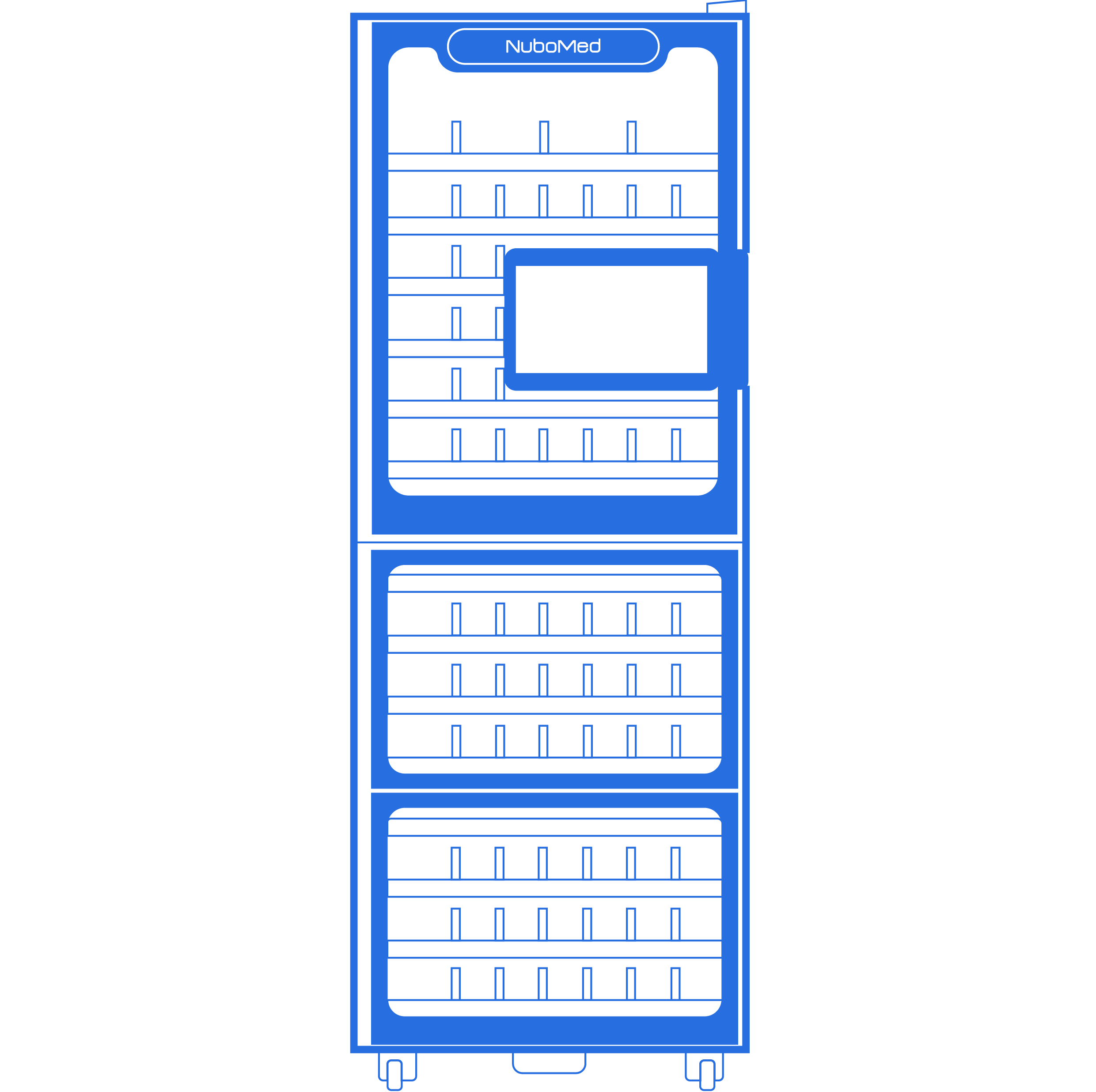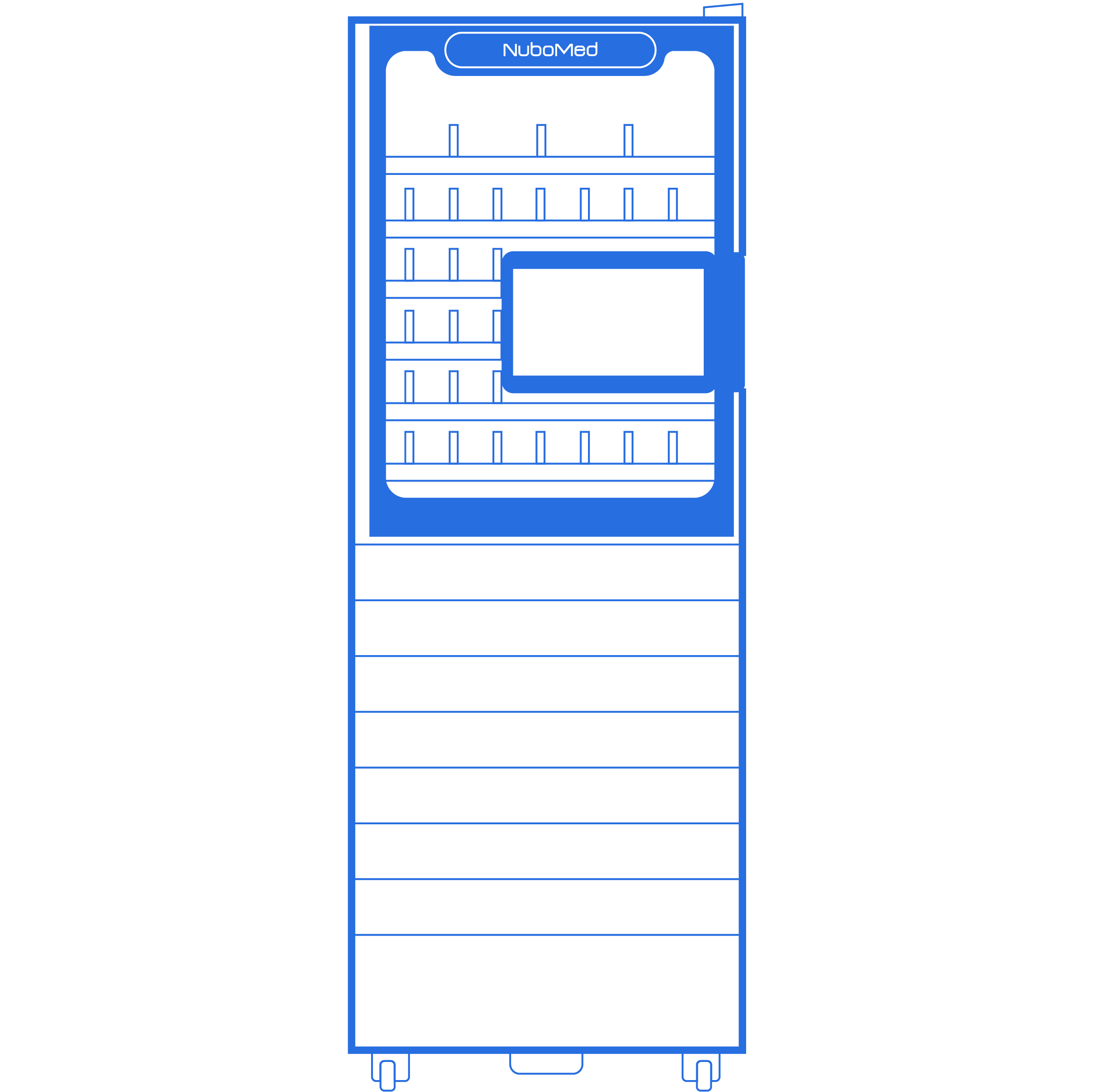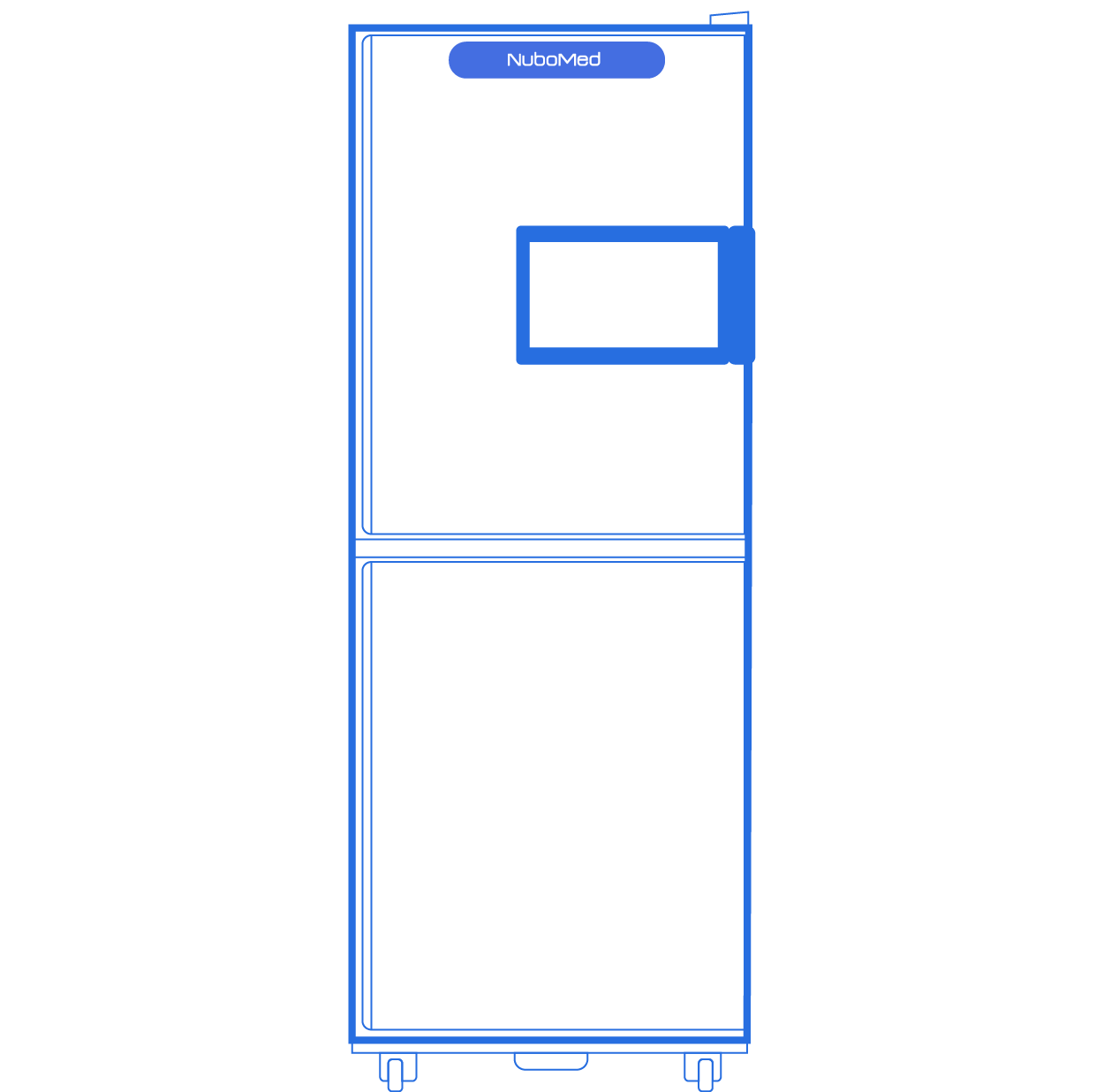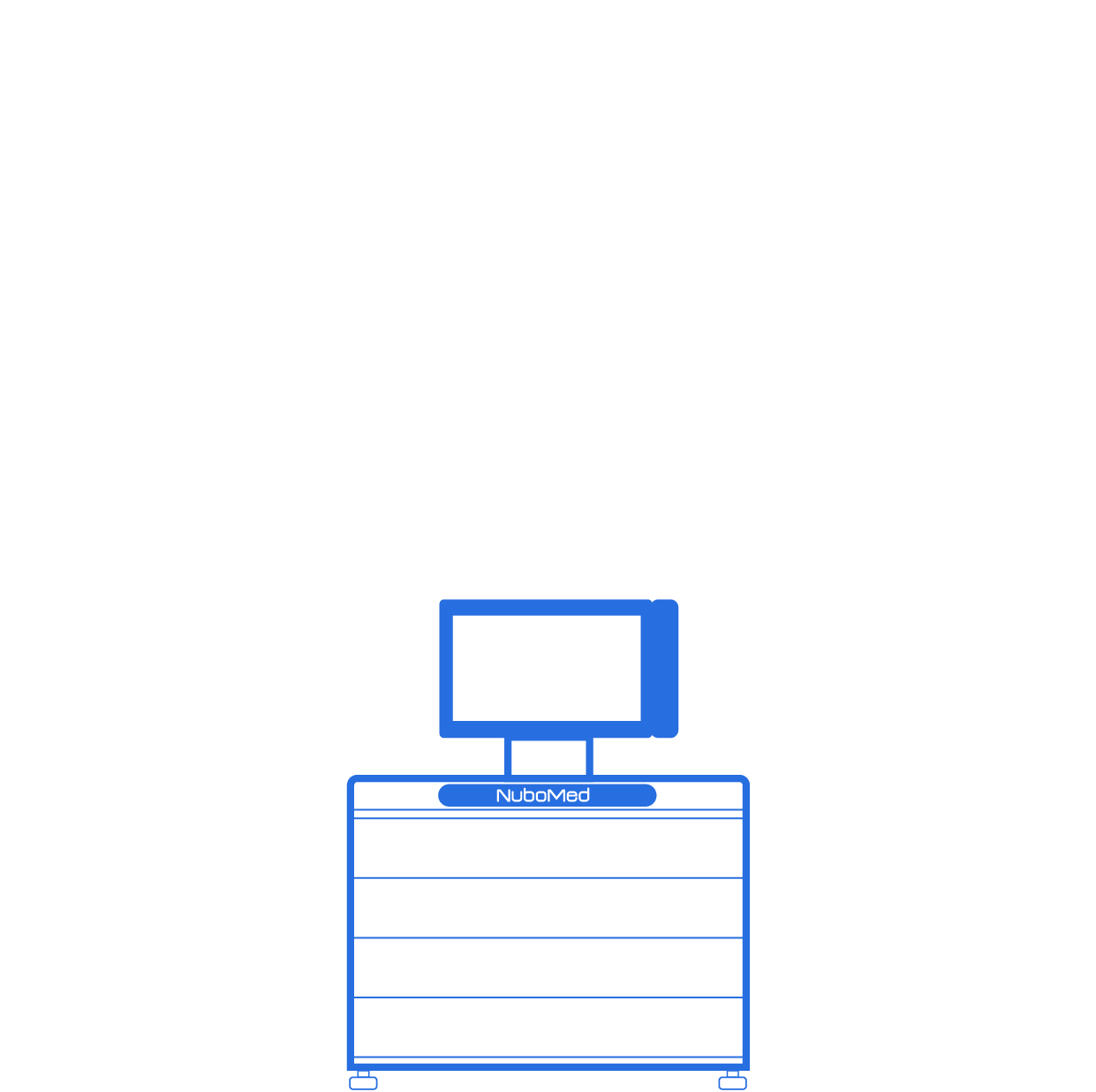- NuboMed
- Smart Hospital
- Overview
- Pharmacy
- Inpatient Ward
- Operating Room
- Products
- Intelligent Closed-loop Medication Management System
 Medication Management Cabinet
Medication Management Cabinet Medication Management Cabinet -Shelf
Medication Management Cabinet -Shelf Medication Management Cabinet-Glass Door
Medication Management Cabinet-Glass Door Medication Management Cabinet - Refrigerator
Medication Management Cabinet - Refrigerator Controlled Substance Management Cabinet
Controlled Substance Management Cabinet Medication Management Cabinet - Composite
Medication Management Cabinet - Composite Medication Management Cabinet - Safe
Medication Management Cabinet - Safe Countertop Medication Management Cabinet
Countertop Medication Management Cabinet
- Intelligent Closed-loop Medical Supply Management System
 Medical Supply Management Cabinet - RFID
Medical Supply Management Cabinet - RFID Medical Supply RFID Room
Medical Supply RFID Room
- Smart Medical Cart
 Medical Cart
Medical Cart Treatment Cart
Treatment Cart Nurse Cart
Nurse Cart Medicine Dispensing Cart
Medicine Dispensing Cart
- Case Studies
- About Us
- Company Intro
- Blog
- FAQ
- Home>
- About Us>
- Blog
Automated Dispensing Cabinets (ADCs) for Accurate Medication Storage and Dispensing
ProductADC
2022-05-26 11:49:08

In the hospital or other
clinical settings, nurses and pharmacists collaborate to ensure accuracy,
safety, and timeliness in the medication dispensing and administration process.
Ensuring the "five rights" of medication use: the right patient, the
right drug, the right time, the right dose, and the right route, is of the
utmost importance to improve the quality of patient care and reduce the risk of
medication errors. However, do you feel overwhelmed by the burden of manually recording
the details of medications for each patient? Or worried about the possibility
of missing out on medication? An automated dispensing cabinet could give you
greater peace of mind and even more...
What are Automated Dispensing Cabinets (ADCs)?
An automated dispensing
cabinet (ADC) is a computerized cabinet for storing and dispensing medications
and supplies at points of care such as wards, OR, ICU, and ER, with
sophisticated software on the back-end that handles patient orders, and medication
dosing documentation, inventory management, and billing transactions.
Most healthcare
facilities now use the decentralized medication distribution approach, in which
medications are centrally managed but physically distributed to different
points of care within the hospital. In this approach, ADCs act as a
decentralized warehouse to keep medications in stock, ready to be dispensed to
patients by the nurses as soon as a doctor orders the treatment plan.
In this scenario,
multiple ADCs - main and auxiliary - are typically required to house all the medications
needed for a hospital. M3000i-M automated dispensing cabinets are a
combination of a main and
an auxiliary cabinet. The main cabinet has a
screen where staff can log into
the system and manage the inventory of medications. The
auxiliary cabinet provides larger storage space for medications and supplies.
Drawers and shelves with different access controls secure different drug forms
such as syringes, vials, ampules, blisters, etc. Customized configurations of
ADCs can be designed to meet the specific needs of a healthcare facility.
Workflow with ADCs
With the implementation
of ADCs, a physician enters a patient's order in the EMR (Electronic Medical
Record) system. The system then automatically routes the order to a server that
manages communication to all of the cabinets. With patients' information and
locations acquired from the hospital's information system, the server sends the
order to the correct ADC on the nursing floor.
Nurses log into the ADC
and select the patient for whom medication is to be dispensed. They simply
select the medication specific to the selected patient from the list that is
displayed on the screen. Guidance lights illuminate the exact location of the
medication to be dispensed, which helps minimize dispensing errors.
To ensure pharmacist
review of medications prior to administration, all ADCs for inpatients are
profiled. While our preference is that all medications undergo a pharmacist
review, we understand that there are urgent situations that require immediate
medication access.
Our override strategy is consistent with
guidance from the Institute for Safe Medication Practices (ISMP), with
condition-based needs—such as pain, anaphylaxis, and acute exacerbation of
asthma—used to generate the override list. While in urgent situations, nurses
are able to access all medications within the ADCs by searching their names.
The senior pharmacy management team is responsible for reviewing new override
and cabinet stocking requests.

Benefits of Modern ADCs
Since their introduction
in the 1980s, ADCs have revolutionized how the nursing staff administers medication
in many North American hospitals. ADC use has become widespread in health
institutions, with 93% of hospitals using ADCs in their medication use systems,
and 70.2% using ADCs as a primary method of maintenance dose distribution.
(ASHP Guidelines on the Safe Use of Automated Dispensing Cabinets)
Some of the benefits
that have emerged are:
(1) Increased charge capture
(2) Lower inventory costs
(3) Reduction of stock-outs
(4) Increased patient safety and satisfaction
(5) Increased operational efficiency for staff
Modern ADCs with state-of-the-art features such as the ones
supplied by NuboMed offer several advantages over the previous generation
equipment. If you are looking to modernize your healthcare facility, contact us
by clicking here to schedule a free demonstration. Our technicians are
available 24/7 to answer any questions you might have.
Related Reading
We use cookies to give you the best online experience. By using the website you agree with ourcookie policy



